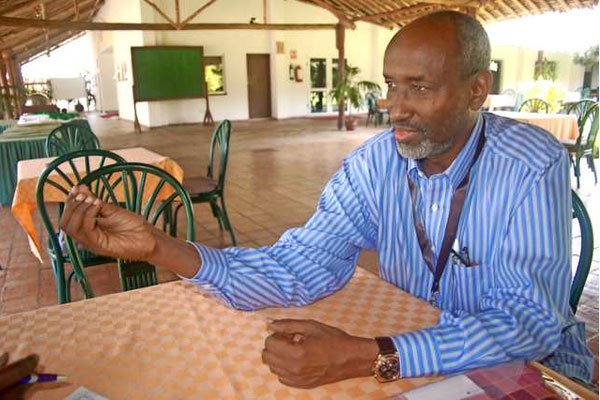As the seven-year term of the current National Land Commission (NLC) comes to an end on February 19, a commissioner has returned a stinging verdict on its performance.
“We must apologise to Kenyans for not standing up to stop some things that should never have been done in the name of the NLC,” commissioner Abdukadir Khalif said in an interview.
The surveyor said the team also owes Kenyans an apology for unmet expectations and for which there was no valid reason, adding that the next commission should get its priorities right to serve Wanjiku, and avoid the mistakes of his team.
Khalif regrets that the NLC was distracted and ultimately failed to achieve its goal to make land transactions simple and efficient with service centres close to citizens.
“Top among these was to stop punishing Wanjiku with tedious and costly journeys to Nairobi for opaque land transactions, and instead devolve functions and processes to the counties. We failed. All key processes are still centralised in Nairobi,” he said.
The policy to devolve land administration and management processes to the counties, to ease the burden, costs and time taken in searches, authentication and approval of documents anticipated to come with unbundling the central registry to county centres was stalled, and remains as it was before the NLC was set up.
Rampant cases of missing files, multiple registration of parcels of land, an opaque regulations regime, and yet-to-be-settled jurisdictional disputes between the NLC and the ministry are still rife.
ADIMINISTRATIONS
This has left citizens, investors and players in the land sector including banks and professionals in a permanent state of abeyance in the absence of clarity about who between the commission and the ministry was the final authority on some key processes like extension and renewal of expired lease titles.
“The policy expected NLC would set up simple and efficient service centres at the county level. The ministry remains captive to a cabal of staff from the past and who have been hostile to NLC and stalled efforts to offload their previous functions to the counties as required by the law,” he said.
In the end, rather than cede to NLC operational functions performed by the ministry under the old legal regime, the Ministry continued to function as if NLC did not exist, while NLC proceeded to set up structures to perform as mandated by the law, a scenario that resulted in two parallel administrations, that mirror each other, at Ardhi House and at the NLC.
Disputes over access to physical space, registry, and disputes over whose signature and seal had the force of the law would spill into the streets and courtrooms, sowing confusion, with both the ministry and the NLC gazetting two parallel lease renewal and extension forms at one point, one signed by the chief registrar and another by the NLC chair, with both claiming legitimacy in law.
Mr Khalif said the commission sought to re-invent the wheel and wasted crucial time, while lots of its work had already been documented by past commissions and taskforces.
EXPUNGE DEEDS
He now says NLC could have done more had it implemented past recommendations like those from the Ndung’u Commission of Inquiry of irregular and allocations (2004).
“It was a major oversight to have ignored the recommendations made by the Ndung’u report and the Njonjo Report on land reforms and list of public assets marked for recovery in those reports.
We should have applied for timeline extensions to accomplish one of our foundational mandates,” Khalif said.
He accused Ardhi House of ignoring recommendations the NLC made to the ministry on irregular land transactions.
“An example is the Karura forest in Nairobi, where individuals are still holding title deeds. The chief registrar at the Lands ministry is yet to expunge those title deeds from the records, despite recommendations by the NLC. Until the lands registrar acts, the forest land remains at risk of conversion by title holders,” he warned.’
By Daily Nation



